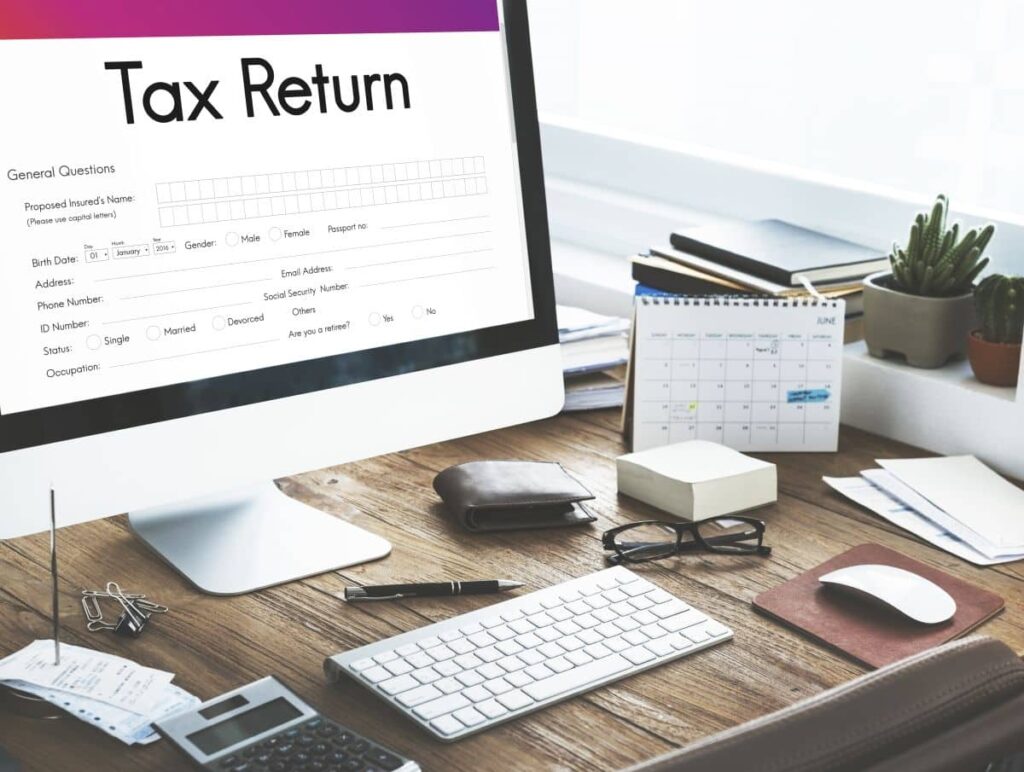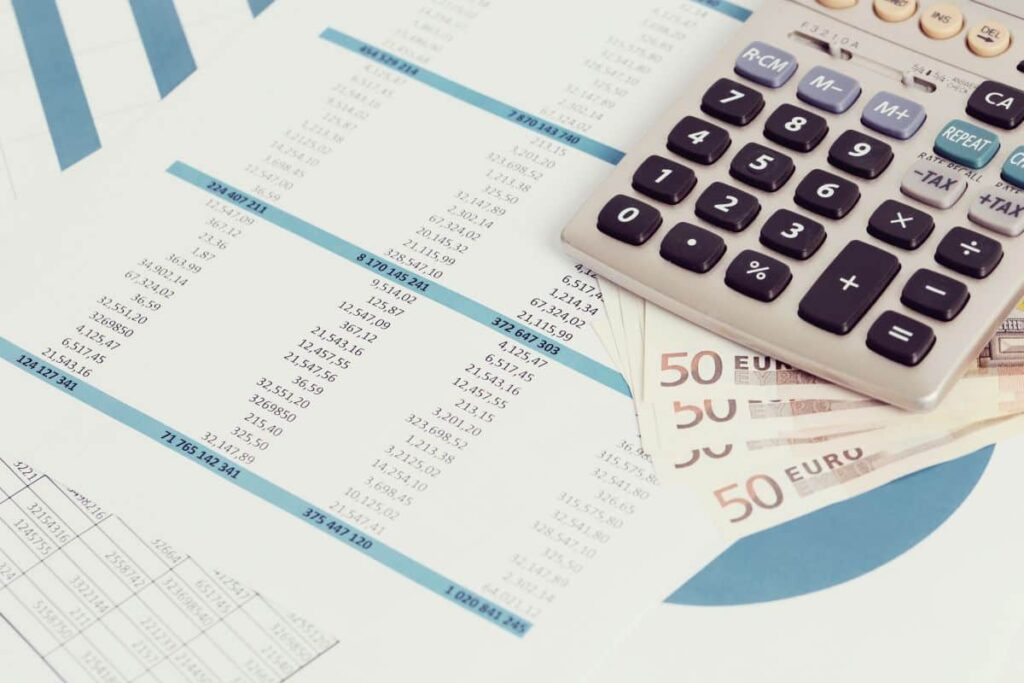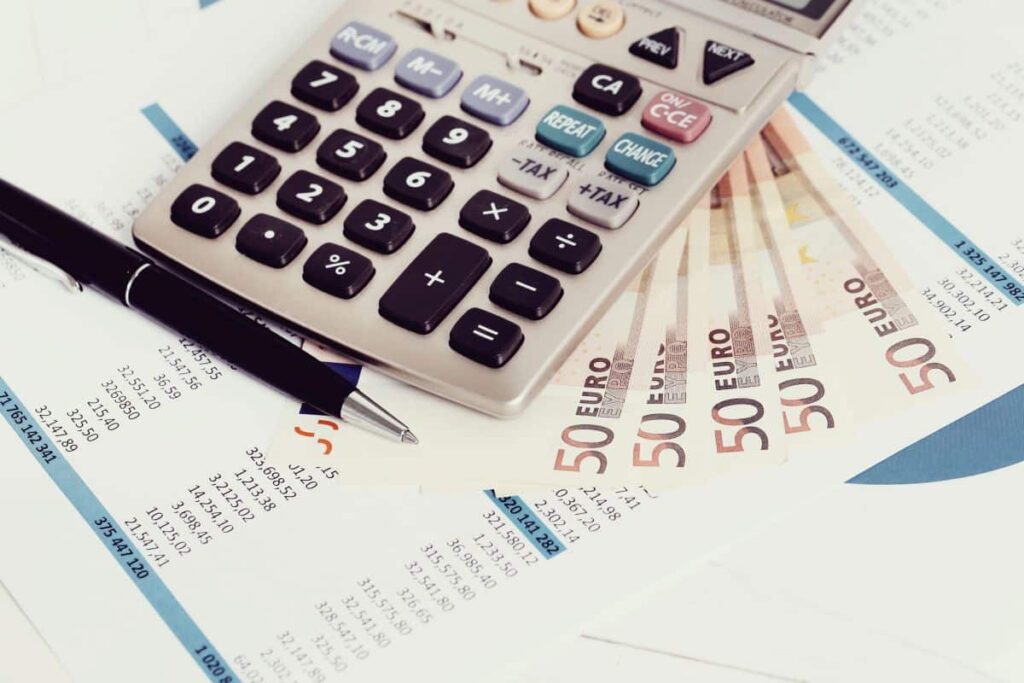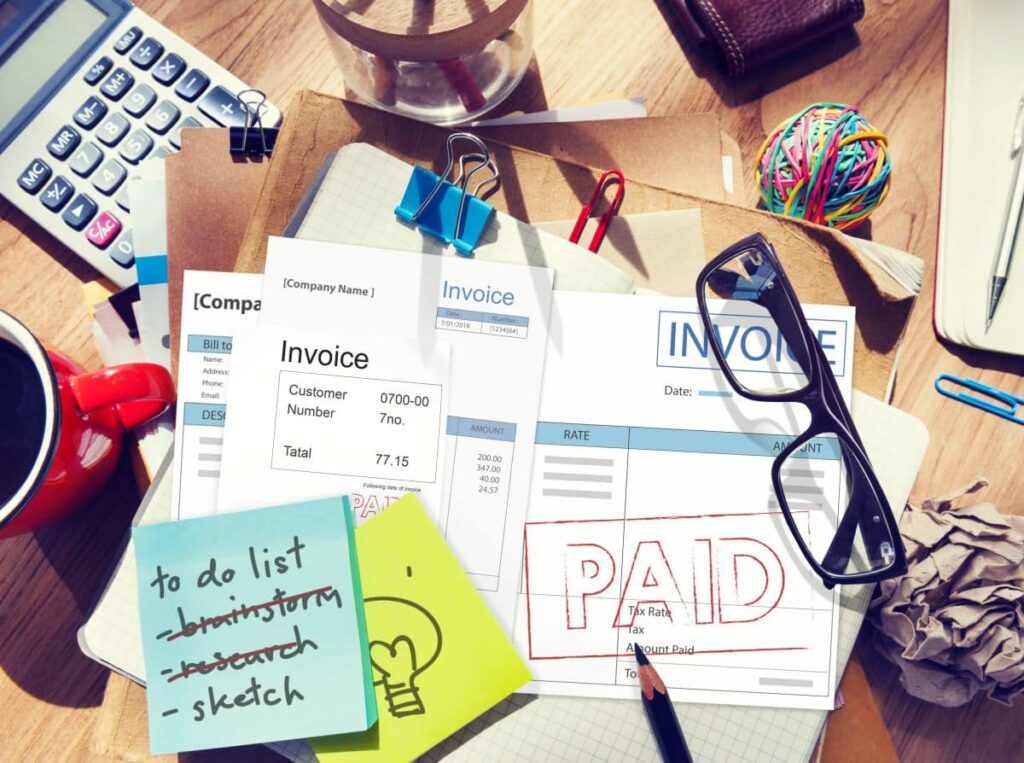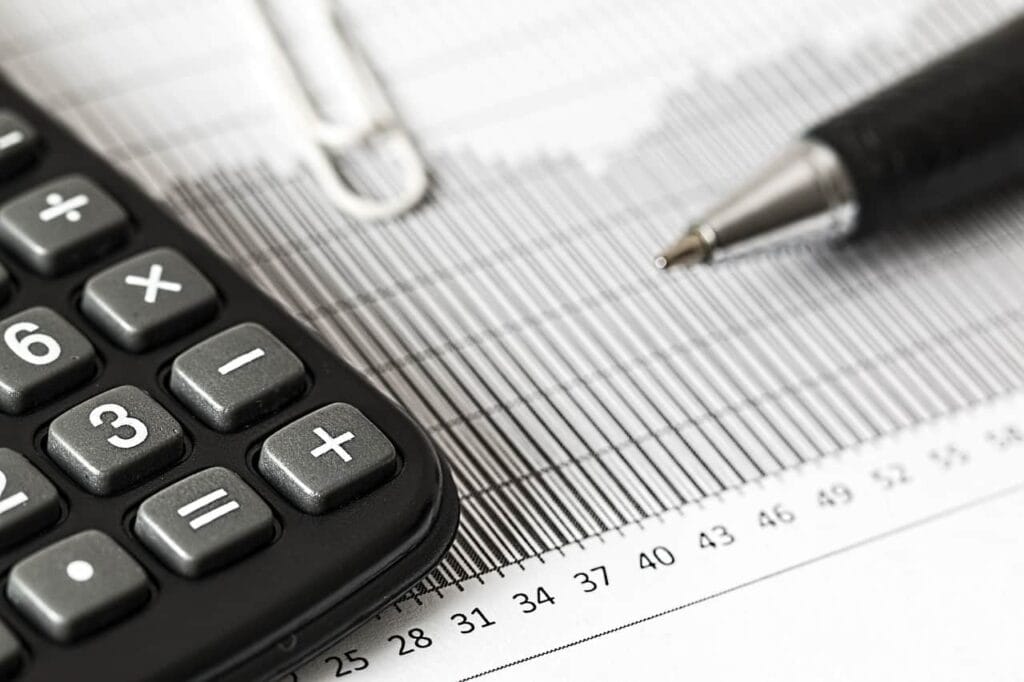Are you a landlord? If so, congratulations! Property ownership is an excellent way to build wealth and create financial stability. But with those rewards come responsibilities – including the responsibility of learning what tax deductions are available to you as a property owner. The process can be confusing, but it doesn't have to be!
In this blog post, we're going to break down the main tax deductions for landlords so that you can easily navigate your way through the filing season without any painful surprises. From deducting repairs and maintenance costs to understanding how depreciation works, by the end of this post, you will understand which deductions are rightfully yours!
Let's get started!
Investment Property Tax Deductions
1. Rent
The revenue that is generated from the property is taxable to the proprietors in the same ratio as the ownership interest that is displayed on the title to the building.
If you want to be capable of deducting all of your expenditures, the rent that you collect needs to be at the usual market rate. Therefore, you are only allowed to claim deductions up to the amount of rent that you charge, even if you rent at a rate that is below the market average (perhaps to relatives or friends).
The rent is required to be reported in the same calendar year that it was received.
2. Interest Claims
It is possible to claim a tax deduction for the interest that was paid on the loan that was utilised to buy the property as long as all of the cash that was borrowed was put towards the acquisition of the property.
When it comes to accounts that are both utilised for business and personal purposes, the interest claim for the line of credit component of the account must be split up accordingly.
3. Tax Deductions
Repairs
The cost of any repairs carried out on the building while it is being leased out is tax deductible; however, the cost of any repairs carried out during the first year of actually owning the residence is not (these can be used to reduce a capital gain on disposal).
Improvements
The total cost of any modifications you make to the property is not tax deductible. Instead, they have to be written down in value and claimed over the course of their useful life.
Other costs may include the following:
- advertising for tenants
- bank charges
- body corporate fees
- cleaning
- council rates
- electricity and gas
- gardening
- lawn mowing
- in-house audio/video service charges
- insurance
- land tax
- legal expenses releases etc.
- lease costs
- pest control
- mortgage discharge expenses
- property agent's fees
- quantity surveyor's fees
- security
- stationery
- postage
- telephone
- water charges
- lenders mortgage insurance (normally written off over the course of the loan's duration, if that is shorter than five years)
Rental Income For Tax Purposes

The Australian Taxation Office (ATO) considers rent money that you get from renting out a portion or all of your property to be income that is subject to taxation and so must be reported by the property owner. This implies that it is subject to taxation at the highest marginal tax rate that you are subject to and needs to be stated in your income tax return.
If you have an annual income before taxes of $80,000 and you receive an annual rental income of $20,000 (before deductions), your total annual income is now $100,000, which is subject to taxation.
If there were no additional income or adjustments during that year, your total tax liability would be $24,497. Additional investment returns, such as realised gains and dividends from stocks, as well as interest generated from any savings accounts or deposit accounts, should also be considered part of your taxable income. These types of investment returns are subject to taxation.
It is important to keep in mind that the description that follows is a highly simplified version of how the tax on rental income works. There is far more to consider than how much money you obtain. Deductions are another important consideration to make.
Deductions To Help Save Tax On Rental Income
According to the Australian Taxation Office (ATO), investment costs can be claimed as tax deductions provided that they are employed on portions of the home that are considered to be investment properties.
Depreciation, interest on loans, and administration and maintenance fees are just some of the primary categories of expenses that are eligible for reimbursement. You are not allowed to make tax deduction claims for expenses that you are not personally responsible for paying, such as when your renters pay for upgrades or energy bills.
The following expenses related to management and maintenance qualify for a deduction:
- Putting up ads in order to find new renters
- Fees and interest on loans charged by the bank
- Fees paid to the body corporate, costs associated with cleaning, and council rates
- The rent does not include the tenant's use of electricity and gas.
- Insurance for the home, its contents, and the landlord
- Costs related to the law and the land tax
- Commissions and fees charged by property managers
- Maintenance and mending of things
- Costs related to travel and car use incurred for the purpose of rent collection or audits
- Expenses incurred for the purpose of either the examination or the upkeep
Although interest on your investment house loan is considered part of the cost of borrowing expenses, the principal balance that must be paid back is not. Other fees associated with borrowing can include:
- Costs associated with establishing a loan
- Lender's mortgage insurance (if applicable)
- Fees for title searches
- Mortgage broker fees (if you used one)
- The mortgage will incur stamp duty charges.
You are also able to claim depreciation losses on recently acquired things, like furniture, blinds and rugs, water systems, and appliances. Ensure you don't overlook any of these potential tax deductions, as they could end up helping you save a significant amount of cash on the investment property or buildings you own.
The aforementioned list is not comprehensive; thus, for more details, please refer to the ATO's section on deductions for investment property. If you need help keeping track of your deductions, consulting a professional accountant may be helpful.
Property Genuinely Available For Rent (Property Not Tenanted, But Available For Rent)
Costs might well be deducted even during times when the property is not being rented out, provided that the property is truly available for rent. This means that the following conditions must be met:
- The rental property is exposed to a large number of prospective occupants as a result of its advertising.
- When everything is taken into account, it can be said that there is a good chance that renters will rent the property.
In most cases, the lack of these criteria is indicative of the owner's lack of serious purpose to generate income from the property in question. There are a number of indications that a rental property isn't really truly available, including the following:
- It is marketed in methods that prevent it from being seen by a large number of prospective tenants. For instance, the property is only marketed in the following ways:
- in the place of employment
- through personal recommendation alone
- excluding the months surrounding the annual holidays, during which the possibility of it being rented out is extremely low
- because of the property's position, its state of disrepair, or its inaccessibility, it is highly doubtful that anyone will be interested in renting it.
- you reduce the possibility of someone renting out the property by imposing unreasonable or restrictive requirements on renting it out, such as the following examples:
– establishing a rent that is higher than the average for properties of a similar type in the region
– putting a number of conditions on the lease for the property, such as saying "no children" and "no pets" and forcing prospective renters to give references for stays of less than one month, are examples of the kinds of limitations that can be placed on the property.
– you do not provide a valid rationale for your decision not to rent out the property to relevant parties.
Expenses Not Deductible
Several of the costs associated with owning an investment property are not eligible for tax deductions. Several are:
- Capital costs include both purchase costs (such as legal fees, stamp duty, commission paid to the buyer's agent, and inspections) and sale expenses (such as commission paid to the selling agent, marketing charges, and legal fees). During the process of calculating capital gains tax, these are added to the cost basis.
- Private use. Suppose the rental home is a vacation home that is utilised for private purposes for part of the year. In that case, the costs are apportioned so that they are not deductible for that portion of the year and are deductible only for the part of the year that it is rented or is truly available for rent. This is because the rental property is considered to be a private residence during the private utilisation component of the year. The same principle applies even if only a portion of the house is rented out, as in the case of a self-contained apartment. In addition, the rent has to be comparable to the market.
- Vacant land. If the land in question either doesn't comprise a substantial and permanent structure at all, or if it does contain a structure that is habitable but has not yet been rented out or is not currently available for rent, then the land is considered vacant land, and there are no tax deductions accessible for the costs associated with it. In most cases, a caravan is not deemed to be suitable for use as a residential rental property.
- Beyond the borders of Australia. Different regulations will apply if the property in question is situated outside of Australia.
How Depreciation Works
It is not possible to deduct as an expense in a single year the cost of any modification that you make to your rental property that is greater than $300 (including new fittings or fixtures, new appliances, and so on).
Instead, you will be required to stagger the payments throughout a number of years (the ATO will tell you how long). "Depreciation of assets based on effective life" is the term used to describe this procedure.
In most cases, there are two different kinds of depreciation:
- Home furnishings and mechanical devices that you acquire for use in your rental property (carpets, air conditioners, new range hoods, etc.) The terms "plant and equipment" and "fixtures and fittings" are frequently used when referring to these types of assets.
- The structure's enhancement includes concrete work, masonry, and so on. These are frequently referred to as 'building allowances' or 'capital allowances,' and they are typically amortised over a period of 40 years at a rate of 2.5% of the asset's initial value.
This indicates that you cannot make a single claim for the price of the most recent range hood model. Rather, it must be written down in value gradually over the span of its lifetime. Using something that is termed as a depreciation schedule, your accountant will calculate the percentage that you are eligible to claim each year.
What’s A Depreciation Schedule?
You are eligible to make a claim on all of the estate's total assets if you invest in a rental home or transform your own house into a rental property. This is true even if the property is spanking new.
But in order to do that, you must be aware of the value of such assets, which may include fixtures, fittings, appliances, and so on. This is when the role of the quantity surveyor comes into play. They will conduct an inspection of your property, take notes as well as photographs of anything that can be depreciated, and devise a depreciation schedule (also known as a depreciation report).
Take note that your property manager, real estate agent, or accountant will not be able to assist you with this task. Only a certified quantity surveyor will be able to complete the task.
The moment directly following the settlement and the moment just before the tenant moves in is the ideal time to establish a depreciation schedule established. They also recommend that you have a depreciation schedule created both before and after you finish any modifications that you have planned.
After you have your report in hand, you are required to store it somewhere safe in case you are ever subject to an audit.
The good news is that you can submit an immediate claim for the total amount it costs to hire a quantity surveyor. You do realise that this is an ongoing cost, right?
Don’t Forget About Land And Property Taxes
1. Property Tax
Property tax is sometimes referred to as council rates. It is used to pay for various local government projects, such as garbage collection and general repair (such as mowing and street cleaning). This tax will be different for each person, dependent on the location of their property and the value of their home. Talk to the members of the council in your area to determine what kind of taxes and fees you'll be responsible for paying.
2. Land Tax
Land tax is a tax that is charged on the aggregate unimproved value of the land that you own, with the exception of the Northern Territory, and the worth of your land is assessed based on how much it would be valued if it were uninhabited. This tax is deductible on investment properties, as you can see from the list of points that have been provided previously.
Capital Gains Tax Applies To Investment Properties
When you sell a capital asset, like stocks or real estate, you either make a capital gain (by selling the item for more than you paid for it) or a capital loss (by selling the asset for less than you paid for it).
The gain from these assets is subject to a tax known as capital gains tax, which is applied to your taxable income in the same way that rental income is. This tax is known as the "tax on capital gains." This may result in a significant rise in the amount of taxable income you report.
Nevertheless, in order to prevent people from engaging in excessive house flipping, investors may be eligible for a capital gains deduction if they have held onto their property for longer than one year.
The current reduction on the capital gains tax is fifty per cent, which means that if you sold some property and earned a profit of one hundred thousand dollars, you would only have to pay taxes on fifty thousand of those dollars.
What About Negative Gearing?

The concept of negative gearing refers to a tax benefit that can now be obtained on investment properties.
Negative gearing is a tax strategy that allows you to deduct losses from your taxable income if you have an investment property that is producing a loss for you (meaning that the costs of maintaining the property are greater than the income it generates). This strategy is pretty straightforward.
The approach of negative gearing is not an income-generating technique; rather, it is a method for avoiding losses. You can lower your taxable income in the short term by deducting the losses from your rental property, and you can make up for those losses in the long run by selling the house, which takes us full circle to the topic of capital gains tax.
In contrast, a piece of real estate is said to be favourably geared when the amount of rental revenue collected is more than the costs associated with holding the property (mortgage repayments, maintenance on the property, and other expenses).
You should keep in mind that negative gearing is only beneficial if you intend to "carry that loss forwards" in order to generate a profit on the property in the future. This is the most important fact to take away from this. If not, you will continue to suffer a financial loss.
Always Keep Receipts For Rental Property Expenses
The Australian Taxation Office (ATO) requires that records of rental income and deductible costs be maintained for a period of five years. This requirement is particularly important in the case of long-term deductions such as asset depreciation.
You won't be able to deduct any costs associated with your rental property from your taxable income if you can't provide proof of the claim, such as a receipt or a bank statement; therefore, you should always keep a track of your receipts, either electronically or manually.
Take Away Tips
As you can see, you have the ability to file a claim for a variety of products, however, it may not be processed immediately.
Here is a concise overview of the information that you require.
- When you initially purchase a property, make sure to get a depreciation plan and/or a scrapping schedule, and consult a quantity surveyor before doing any modifications. Their depreciation schedule will make it easier for you to claim deductions against your rental income, which will ultimately result in a lower profit margin and lower tax obligations for you.
- Not everything can be claimed, particularly if your property isn't currently being rented out. Items that can't be claimed include:
- Make every effort to ensure that the repairs you perform are "like for like," as this will allow you to instantly claim them as ongoing expenses rather than needing to depreciate them.
- Investigate the availability of online accounting tools that can assist you in the management of your costs and revenues so that you are always aware of the performance of your property.
- Before you purchase or sell an investment property (or rent out your personal dwelling), you should have a conversation with your accountant in case there are any capital gains tax consequences that you were unaware of.
Frequently Asked Questions
- Building insurance.
- Contents insurance.
- Public liability insurance.
- Landlord insurance.
- Claim depreciation to maximise returns. Any investment property that generates income may be eligible for thousands of dollars in depreciation deductions. ...
- Declaring rental income and expenses. ...
- Claim correctly for repairs and renovations.
- Rental advertising costs. Landlords need to find tenants or re-let properties and do so through a range of advertising. ...
- Loan interest. ...
- Council rates. ...
- Land tax. ...
- Strata fees. ...
- Building depreciation. ...
- Appliance depreciation. ...
- Repairs and maintenance.
Property investors typically claim interest charged through a mortgage on a rental property as a tax deduction. Other common tax deductions include management costs (like property agent fees), land tax, and maintenance costs (like cleaning, gardening, insurance and repairs).
You can claim the costs in portions over several years. This is known as a Capital Works deduction. Similar to plant and equipment depreciation, this is a non-cash investment property tax deduction. You can generally claim 2.5% of the construction cost per year from the time that it was built, for 40 years.


